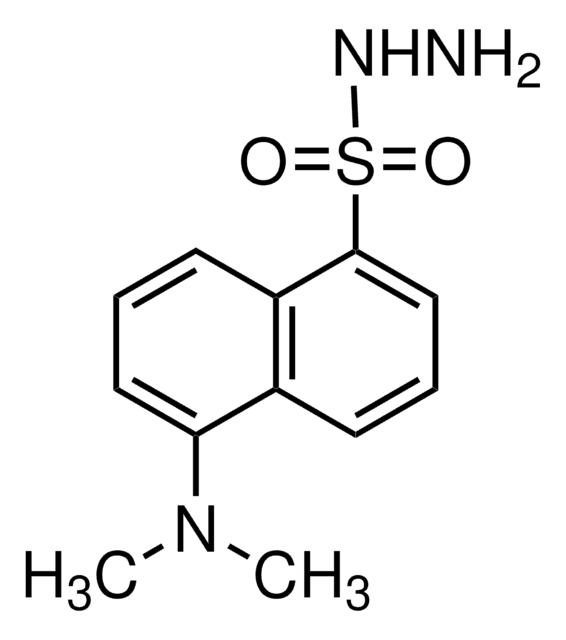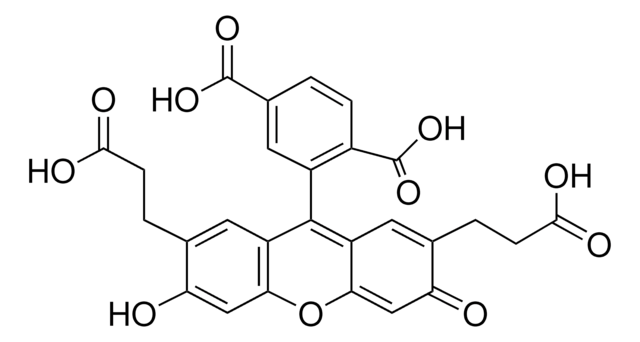09341
8-Aminopyrene-1,3,6-trisulfonic acid trisodium salt
suitable for fluorescence, BioReagent, ≥96.0% (HPCE)
Synonym(s):
1,3,6-Pyrenetrisulfonic acid, 8-amino trisodium salt, APTS, Trisodium 8-aminopyrene-1,3,6-trisulfonate
About This Item
Recommended Products
product line
BioReagent
Assay
≥96.0% (HPCE)
mp
≥250 °C (lit.)
solubility
DMF: soluble
DMSO: soluble
H2O: soluble
fluorescence
λex 420 nm; λem 500 nm in 0.1 M Tris pH 7.4 (quenching with Vitamin B1)
λex 488 nm; λem 520 nm(lit.)
suitability
suitable for fluorescence
SMILES string
[Na+].[Na+].[Na+].Nc1cc(c2ccc3c(cc(c4ccc1c2c34)S([O-])(=O)=O)S([O-])(=O)=O)S([O-])(=O)=O
InChI
1S/C16H11NO9S3.3Na/c17-11-5-12(27(18,19)20)8-3-4-10-14(29(24,25)26)6-13(28(21,22)23)9-2-1-7(11)15(8)16(9)10;;;/h1-6H,17H2,(H,18,19,20)(H,21,22,23)(H,24,25,26);;;/q;3*+1/p-3
InChI key
XSTNYACEWLNWPY-UHFFFAOYSA-K
Looking for similar products? Visit Product Comparison Guide
Related Categories
Application
Other Notes
Signal Word
Warning
Hazard Statements
Precautionary Statements
Hazard Classifications
Eye Irrit. 2 - Skin Irrit. 2 - STOT SE 3
Target Organs
Respiratory system
Storage Class Code
11 - Combustible Solids
WGK
WGK 3
Flash Point(F)
Not applicable
Flash Point(C)
Not applicable
Personal Protective Equipment
Certificates of Analysis (COA)
Search for Certificates of Analysis (COA) by entering the products Lot/Batch Number. Lot and Batch Numbers can be found on a product’s label following the words ‘Lot’ or ‘Batch’.
Already Own This Product?
Find documentation for the products that you have recently purchased in the Document Library.
Customers Also Viewed
Articles
Glycans play a key role in protein structure and disease; representation on cell surfaces is the glycome.
Glycans play a key role in protein structure and disease; representation on cell surfaces is the glycome.
Glycans play a key role in protein structure and disease; representation on cell surfaces is the glycome.
Glycans play a key role in protein structure and disease; representation on cell surfaces is the glycome.
Our team of scientists has experience in all areas of research including Life Science, Material Science, Chemical Synthesis, Chromatography, Analytical and many others.
Contact Technical Service












